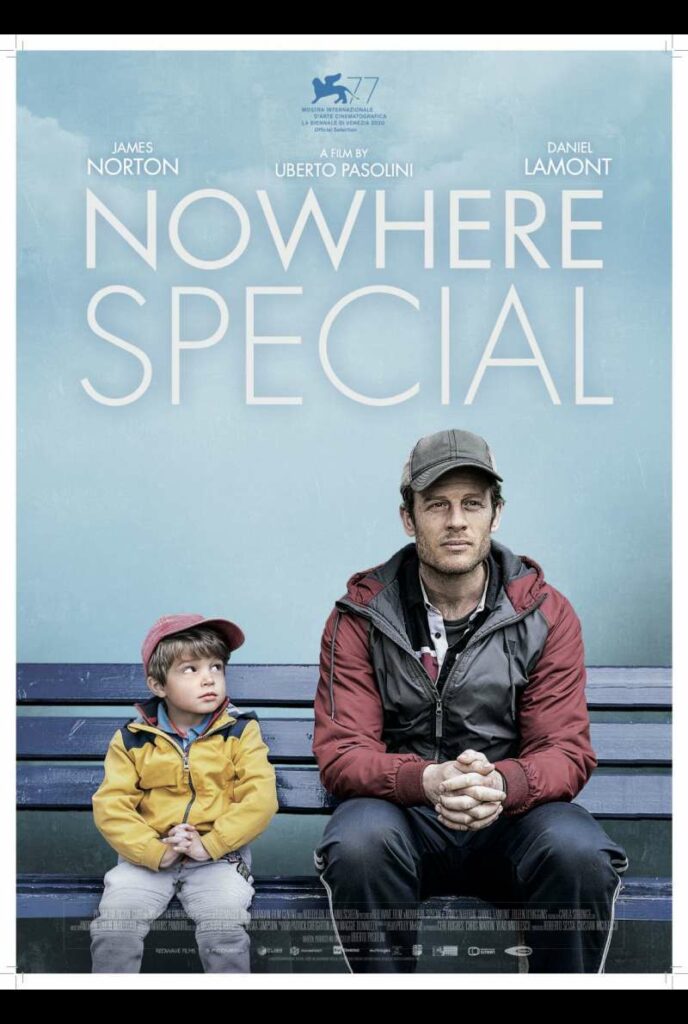
Most movies which are tear jerkers or weepers or whatever you want to call them, make you cry during the movie, at some point. This one I didn’t cry at all, until the credits started rolling. I think that’s a really remarkable achievement.
James Norton plays John and his problem is not a complex problem, but almost unbelievably difficult. He has a four year old, Michael, and he, John, has a terminal illness — presumably cancer but they don’t say and it isn’t important. The mother of the boy left them and went back to Russia, abandoning her husband and son, and in fact has cut them off completely.
In any event, as one of the adoption agents points out, it is already too late to try to reunite the son with his mother, even if he knew where she was. He has to find a family for his son before he dies, and to that extent he is working with an agency, and doing some fairly illegal things to boot, to interview various candidates in the hope that he’ll find the right one.
He’s a window washer, and there are innumerable scenes of him looking through windows into other people’s lives, and sometimes, weird constant reminders that he’s not going to be around much longer. The son seems to sense something going on with his father, but I think the main conflict in the movie is that John does not want his son to remember him. He wants his son to forget him and to grow up not knowing he was adopted by a new family. This is a little bit of pipe dream and the adoption agents keep trying to get him to realize that he must talk about it with his son (they have a children’s book called “How the dinosaur dies,” that he can use.) They also want him to create a memory box that the boy will be able to open at a later date, when he reaches the age where he wants to try to reconstruct an image of his father and mother. They remind him, that legally, Michael will be able to request the names of his birth parents when he turns 18. But John is one of those beleaguered world weary types who just wants to be forgotten. So it is essentially an internal conflict — or a conflict of what happens when the inner emotional reality bumps up against the outside world.
He interviews a total of five families, I think, and in the end, he picks the one I would have picked, so I felt like I had judged correctly. And that, ironically, is where the movie ended, the credits rolled, and I suddenly felt like I had a rock stuck in my throat. Very slow and beautiful. Really well done for someone who wrote, directed and produced his own movie.
